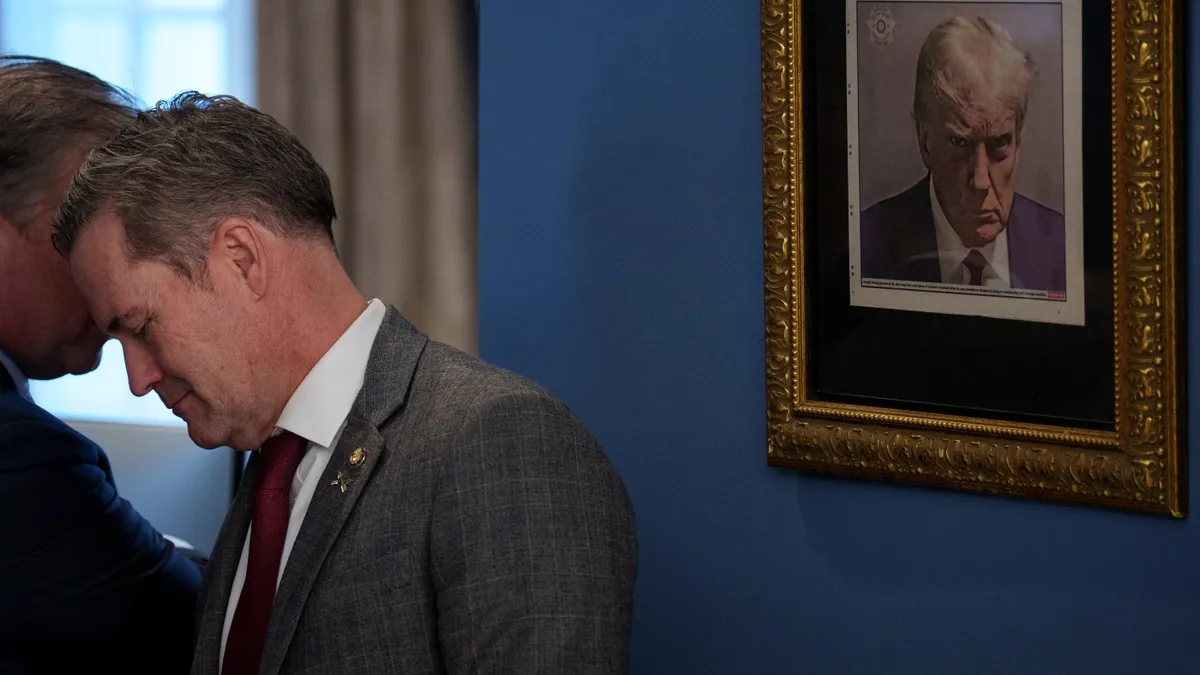
On Thursday, President Donald Trump announced his nomination of Mike Waltz, the current national security adviser, as the new ambassador to the United Nations. This decision marks the first significant reshuffle of senior aides since Trump began his second term in office. In a social media post, Trump also revealed that Marco Rubio would temporarily take on the role of national security adviser in addition to his responsibilities as Secretary of State, a rare occurrence in U.S. political history.
Waltz's new appointment as UN ambassador is subject to confirmation by the U.S. Senate, where Republicans hold a narrow majority. However, there are concerns among some senators following a recent incident where a journalist was inadvertently included in a private group chat discussing military strategies regarding U.S. strikes on the Houthis in Yemen. The UN ambassador position has remained vacant since Trump requested his first nominee, Rep. Elise Stefanik of New York, to remain in Congress to help maintain the fragile Republican majority in the House.
Expressing his gratitude on social media, Waltz stated, "I'm deeply honored to continue my service to President Trump and our great nation." Trump's administration previously defended Waltz after the group chat incident, which he described as a mere glitch. In his announcement, Trump praised Waltz and downplayed the significance of the mishap. When asked about Waltz's future, Trump remarked, "I think we learned, 'Maybe don't use Signal, okay?'" cautioning against the use of certain messaging apps.
While Trump has yet to comment directly to reporters about this decision, Vice President Vance emphasized in an interview that the adjustment in roles was not related to the group chat incident. Vance told Fox News' Bret Baier, "I know the president really likes Mike Waltz. He just thought that the UN ambassador position would be a better place for Mike Waltz to be." He further clarified that the media's portrayal of the change as a firing was inaccurate, stating, "Donald Trump has fired a lot of people. He doesn't give them Senate-confirmed appointments afterwards."
Mike Waltz, a former Green Beret and three-term congressman representing east central Florida, is recognized as a national security hawk. Despite his advocacy for sanctions against Russia, he has not always aligned perfectly with Trump's often unorthodox foreign policy approach. Vance dismissed any claims suggesting ideological rifts within Trump's team, asserting that the changes do not signify a divide between hawks and anti-hawks.
Holding both the Secretary of State and national security adviser positions simultaneously is unusual. The last individual to do so was Henry Kissinger during the Nixon administration, a scenario that raised concerns about excessive power concentration. Trump's decision to have Rubio serve in both roles is expected to be temporary until a new national security adviser is appointed.
Experts have noted that while it is unconventional for a president to assign multiple high-level positions to trusted individuals, it is not unprecedented in Trump's administration. Katie Dunn Tenpas, a Brookings Institution expert on presidential personnel, remarked, "It's highly unconventional, but it's not unusual for the Trump administration." She expressed fascination over the administrative dynamics seen in Trump's first term.
As this situation unfolds, many are watching closely to see how these changes will impact the administration's approach to crucial national security issues, including ongoing conflicts in Ukraine and Gaza, as well as diplomatic negotiations with Iran.